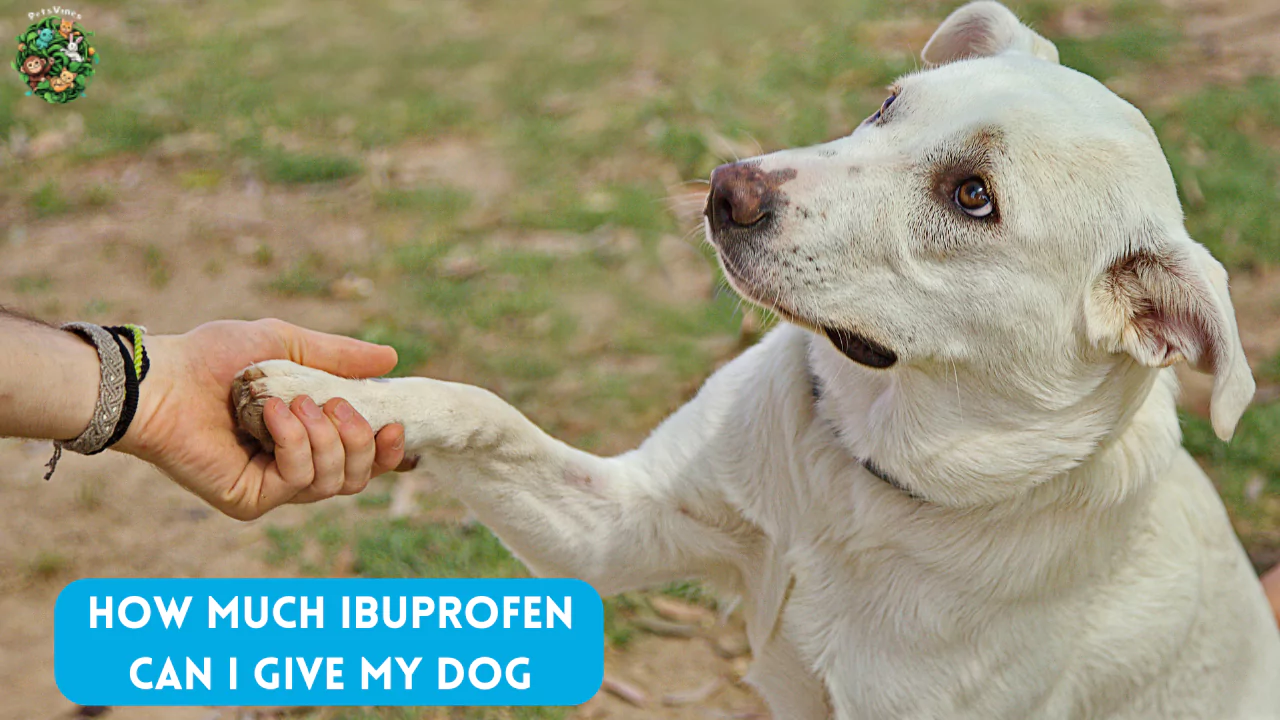Maintaining your dog’s ear health is crucial for their overall well-being. Regular ear cleaning prevents infections, discomfort, and hearing issues. This comprehensive guide will explore natural home methods for cleaning dog ears, address related concerns like skunk odor removal, and discuss common ear problems and their solutions.
As a responsible pet owner, you always want the best for your furry companion. When your dog is in pain, it is natural to seek immediate relief. Many pet parents consider giving over-the-counter (OTC) medications like ibuprofen (Advil, Motrin) to their dogs. However, is ibuprofen safe for dogs? How much can you give your pet? This detailed guide will answer all your concerns regarding ibuprofen dosage, risks, and safer alternatives for pain management in dogs.
Can Dogs Take Ibuprofen?
The short and straightforward answer is no, dogs should not take ibuprofen. Unlike humans, dogs process medications differently. Ibuprofen belongs to the class of nonsteroidal anti-inflammatory drugs (NSAIDs), which can be toxic to dogs even in small doses. Veterinarians strongly advise against giving ibuprofen to dogs due to the high risk of poisoning and severe side effects.
Why is Ibuprofen Dangerous for Dogs?
Ibuprofen can cause severe toxicity in dogs because it affects the enzymes responsible for protecting the stomach lining and kidneys. Some of the major risks associated with ibuprofen toxicity in dogs include:
1. Gastrointestinal Issues
- Stomach ulcers
- Vomiting and diarrhea (sometimes with blood)
- Loss of appetite
- Abdominal pain
2. Kidney Damage
- Increased thirst
- Frequent urination or decreased urination
- Lethargy and weakness
- Kidney failure in severe cases
3. Neurological Symptoms
- Loss of coordination
- Seizures
- Coma in extreme cases
4. Liver Toxicity
- Jaundice (yellowing of skin and eyes)
- Liver failure
What is the Lethal Dose of Ibuprofen for Dogs?
The toxic dose of ibuprofen for dogs is relatively low. Even small amounts can be harmful:
- 50 mg per kg (22.7 mg per pound): Risk of stomach ulcers
- 100 mg per kg (45.4 mg per pound): Risk of kidney damage
- 200 mg per kg (90.7 mg per pound): Potentially fatal
For example, if your dog weighs 10 kg (22 lbs), ingesting just 500 mg of ibuprofen can cause serious problems.
Symptoms of Ibuprofen Poisoning in Dogs
If your dog accidentally consumes ibuprofen, you may notice the following symptoms:
- Vomiting
- Bloody or black stools
- Loss of appetite
- Weakness and lethargy
- Seizures
- Difficulty breathing
- Collapse
If you suspect ibuprofen poisoning, seek immediate veterinary help. Early treatment is critical to saving your dog’s life.
What to Do If Your Dog Eats Ibuprofen?
Step 1: Contact Your Veterinarian Immediately
Time is crucial when dealing with ibuprofen poisoning. Call your vet or an emergency pet poison control center such as:
- ASPCA Animal Poison Control Center: (888) 426-4435
- Pet Poison Helpline: (855) 764-7661
Step 2: Do Not Induce Vomiting Without Veterinary Guidance
Vomiting can sometimes do more harm than good, especially if too much time has passed since ingestion.
Step 3: Provide Supportive Care
- If directed by your vet, give activated charcoal to reduce absorption.
- Offer fresh water to prevent dehydration.
- Monitor your dog’s behavior and vital signs.
Safe Alternatives to Ibuprofen for Dogs
Instead of ibuprofen, consider vet-approved pain relief options:
1. Veterinary NSAIDs
- Carprofen (Rimadyl)
- Meloxicam (Metacam)
- Firocoxib (Previcox)
- Deracoxib (Deramaxx)
2. Natural Remedies
- Turmeric: Contains curcumin, a natural anti-inflammatory agent.
- Omega-3 Fatty Acids: Found in fish oil, it helps reduce joint inflammation.
- CBD Oil: Some pet owners report positive effects in managing pain.
3. Physical Therapy and Lifestyle Changes
- Massage therapy
- Hydrotherapy (swimming)
- Weight management to reduce joint strain
How to Prevent Ibuprofen Poisoning in Dogs?
Store Medications Safely
Keep ibuprofen and other human medications in a locked cabinet or high shelf where pets cannot access them. Dogs are naturally curious and may chew through bottles if left within reach.
Never Self-Medicate Your Dog
Even if your dog is in pain, do not assume that human medications are safe. Always consult a veterinarian before giving any medication, as certain drugs that work for humans can be highly toxic to pets.
Use Pet-Specific Medications
Only administer pain relief that is specifically formulated for dogs. Veterinary-approved NSAIDs and painkillers are designed to be safer and more effective for canine use. Your vet can recommend the best treatment for your dog’s specific needs.
Be Aware of Symptoms of Poisoning
Educate yourself on the signs of ibuprofen poisoning so you can act quickly if an accidental ingestion occurs. The sooner you seek veterinary care, the better the chances of a full recovery.
Educate Family Members
Ensure that all family members, including children, understand the dangers of giving human medications to pets. Encourage everyone in your household to keep medications securely stored.
Dispose of Medications Properly
Expired or unused ibuprofen should be disposed of safely to prevent accidental ingestion. Consult your local pharmacy or veterinarian for guidance on safe medication disposal.
Conclusion
Never give ibuprofen to your dog—even a small dose can be toxic and potentially fatal. If your pet is in pain, consult a veterinarian for safe and effective alternatives. Being informed about the risks of ibuprofen poisoning can help protect your furry friend and ensure their well-being.
For more pet health tips and expert advice, visit PetsVines.com.
Read Also: Best Ways to Clean Dog Ears & Remove Skunk Smell Fast!











